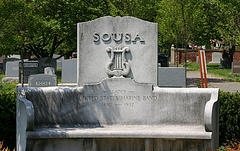 |
| Netrebko as Anna Bolena |
It is interesting to note two distinctive critical reviews of the performance, first by Anthony Tommasini, of the New York Times, who heaps large amounts of praise upon all of the singers in the production. While he notes that prima donna Anna Netrebko started "tentatively," her "approach is to sing coloratura as a lyrical elaboration of the vocal line, which she did affectingly as Anna. And she exudes vocal charisma." Tommasini heaped equal amounts of praise on the other singers, including bass-baritone Ildar Abdrazakov ("earthy muscular voice"), and tenor Stephen Costello of whom he stated, "Mr. Costello mostly navigated the music’s demanding passagework and exposed high notes. To hear this rising artist stretching himself was part of the excitement."
 |
| Anthony Tommasini |
Still, Mr. Tommasini concludes his review with albeit faint praise, "(General Manager Peter) Mr. Gelb has said that ideally the Met should make an artistic statement by presenting an ambitious new production every opening night. Two years ago he took a chance on Luc Bondy’s ill-conceived staging of Puccini’s Tosca. Last season came the premiere of Robert Lepage’s production of Wagner’s Rheingold which is still being argued over, as audiences await the last two installments of the complete “Ring” cycle this season. Anna Bolena represented a different sort of risk. To make a case for this great, overlooked opera, a company must have a stellar soprano in the title role. Ms. Netrebko is that artist. If only she and her colleagues onstage had received more help from Mr. (David) McVicar (Production Director) and Mr. Armiliato."
 |
| Greg Sandow |
Sandow succinctly states that neither of the singers in the two major roles had the vocal heft in the lower range to make for a convincing performance. "I won’t deny that Anna Nebtrebko sang Anna’s high-lying music very beautifully, but the meat of the role lies low...." and "we got Ildar Abdrazakov, a pleasant bass-baritone, whose voice rang out nicely above middle C, but couldn’t begin to produce the low notes the score calls for. He could sing them, obviously. But not with the scathing regal power the music is supposed to project." Seems to be enough said there.
Sandow then takes aim at the tenor, whom Mr. Tommasini praised, "Additional rant: open the score, and page through the tenor’s two arias. You’ll find acrobatic passages in both, where the singer needs to leap up to high C, and then sing scales down from it. Stephen Costello, miscast in the part, couldn’t sing a high C. The sound he produced was — and, truly, I’m sorry to sound harsh, but this is the truth — an unmusical squeal, pitched vaguely in the area of high C. But maybe more like an unpitched sound, than a sung note. So why cast him? Maybe, a couple of years ago, when he would have been engaged for the part, he really could sing the Cs. But since he can’t do it now, why send him onstage to fail so badly?"
 | ||
| How viable is the Met in Peter Gelb's hands? |
Sandow then launches into a lengthy discussion on the medium of 19th century bel canto opera and its implications within operatic history and potential pitfalls for contemporary performance. He makes a very convincing argument and one deserving to be read in its entirety (see the link above). Mr. Sandow makes distinct musical arguments about the performance based upon what appears to be a more than intimate knowledge of the genre and the score. The opening night at our nation's most important opera house should usher in a triumphant view of the season to come. With the other difficulties facing the Met (including our still-rampant economic crisis and the incapacitation of Music Director James Levine) we may just be left with a dud.























